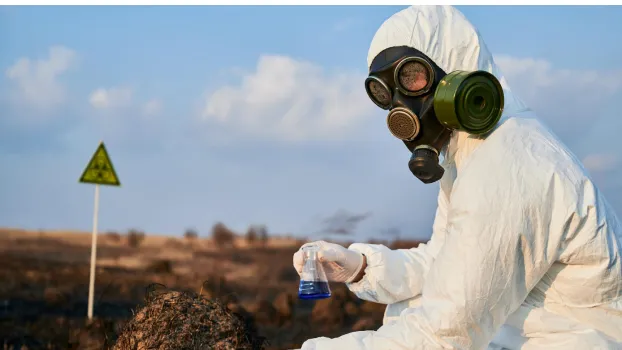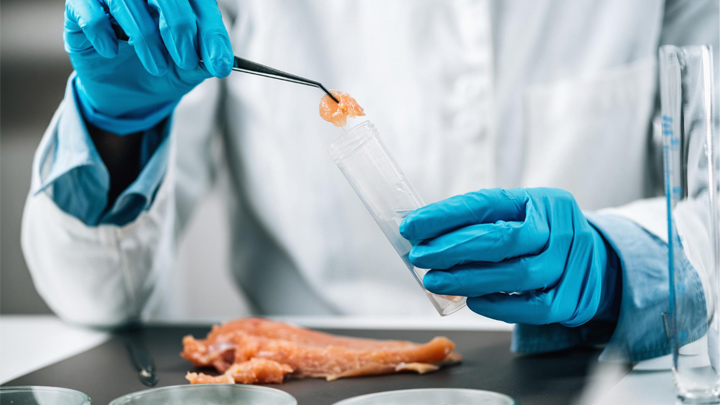The Importance of Corrosion Testing in Manufacturing
Why is corrosion testing so important to guaranteeing the dependability and longevity of manufactured goods?
Even the strongest materials can gradually deteriorate in the manufacturing world without anyone noticing. If corrosion is not identified early, it can compromise safety, shorten the lifespan of products, and result in expensive failures. It is one of the largest hidden threats. For industrial equipment, construction materials, or automobile parts, durability and dependability are essential. Corrosion testing becomes essential in this situation.
Manufacturers can find weaknesses, improve material performance, and avert unplanned failures by modeling real-world environmental conditions. Well, look at the advantages of corrosion testing, why it’s essential to contemporary manufacturing, and how to protect goods from the unseen danger of corrosion in this blog.
Table Of Contents:
What Is Corrosion Testing?
Testing the reaction of materials like metal coatings and alloys to environmental conditions is known as corrosion testing. This testing allows one to determine how long the products will hold up against environmental factors like temperature, moisture, salt, and chemicals. These are the primary goals of corrosion testing:
- Assure the products’ stability and long-term durability.
- Prevent unexpected failures and business losses.
- It is an analytical procedure that uses data and mathematical tests to assess the material coating and material performance of goods.
Why Is It Important?
Ensuring the quality, durability, and safety of products is the top priority in both the Indian and international markets. Whether it is a minor or well-known issue, corrosion frequently has harmful consequences despite being invisible to the human eye. As a result, corrosion testing is now a crucial part of the industry.
- Weak areas can be found and strengthened by testing how metal alloys and coatings respond to environmental conditions over time. By doing this, the product’s durability and functionality are guaranteed.
- Unexpected corrosion-related breakdowns, structural damage, and mechanical failures can result in significant financial losses as well as risks for the company and its clients. By lowering these risks, corrosion testing ensures that the products are dependable and safe.
- It is possible to prevent market failures, expensive repair bills, and warranty problems by identifying defective parts early. This lowers operating costs and turns the investment into a profit.
- Numerous industries, including construction, maritime, automotive, and aerospace, are required to adhere to international safety and data standards. Testing for corrosion guarantees that goods fulfill these requirements.
Types Of Corrosion Testing
Testing for corrosion is a crucial step in ensuring a product’s long-term quality and durability. To meet industry standards and assess how materials react to various environmental conditions, a variety of testing techniques are employed. The following are the primary types:
Salt Spray Test:
Salt spray testing is the method of corrosion testing that is most widely used and most popular. It is used to provide a comprehensive analysis of a material’s resistance to environmental influences and long-term coating strength.
- Metal products in a laboratory are subjected to a salt spray solution.
- The items display rusting, oxidation, delamination, and corrosion patterns.
- During the test period, the response of the material is monitored and recorded.
Key Benefits:
- Salt spray testing provides a detailed analysis of how materials react in saline coastal and marine environments.
- Evidence of rusting, oxidation, and delamination helps with preemptive modification and product improvement.
- It is very helpful in industrial manufacturing to meet specifications and win over customers.
- Before going on sale, products can be tested for salt spray to prevent unanticipated malfunctions, accidents, and standard violations.
Examine the Cycle for Corrosion:
Investigating how materials react to harsh environmental conditions is made easier by this test.
- Materials are put through a number of temperature, humidity, and salt cycles in the lab as part of the test.
- This helps predict the longevity of coatings and alloys used in metal parts.
- The test reveals oxidation, rusting, delamination, and material degradation.
Key Benefits:
- To make sure the materials are safe and long-lasting, real-world environmental variations can be modeled.
- Assessing how materials react to various climates makes it easier to choose efficient coatings and improves product design.
- The construction, aerospace, and automotive industries all adhere to international standards.
- Prior to a product being released onto the market, cyclic corrosion testing helps prevent unanticipated malfunctions, mishaps, and customer complaints.
Other Common Testing:
- Electrochemical testing
- Immersion testing
- Industry-Specific testing
- Advanced & Accelerated tests
Benefits
- Corrosion testing can be used to choose coatings and test materials to improve them and find weak areas beforehand.
- Helps prevent corrosion-induced structural damage and mechanical failures, ensuring product dependability and consumer safety.
- Lowering service costs, warranty problems, and market failures by identifying issues early.
- In sectors like construction, automotive, and aerospace, corrosion testing aids in meeting safety regulations.
- Adjusting designs, coatings, and materials in response to test results to improve products’ longevity and functionality.
FAQ
Corrosion testing: What is it?
One scientific testing technique for assessing how materials metal products or coatings respond to different environmental conditions is corrosion testing.
What makes corrosion testing so important?
It guarantees the products long-term quality safety and durability. Additionally it helps to prevent structural damage and mechanical failures in the industry.
Which sectors need corrosion testing?
Automotive aerospace marine construction and electrical equipment manufacturing are among the industries that primarily need corrosion testing.






